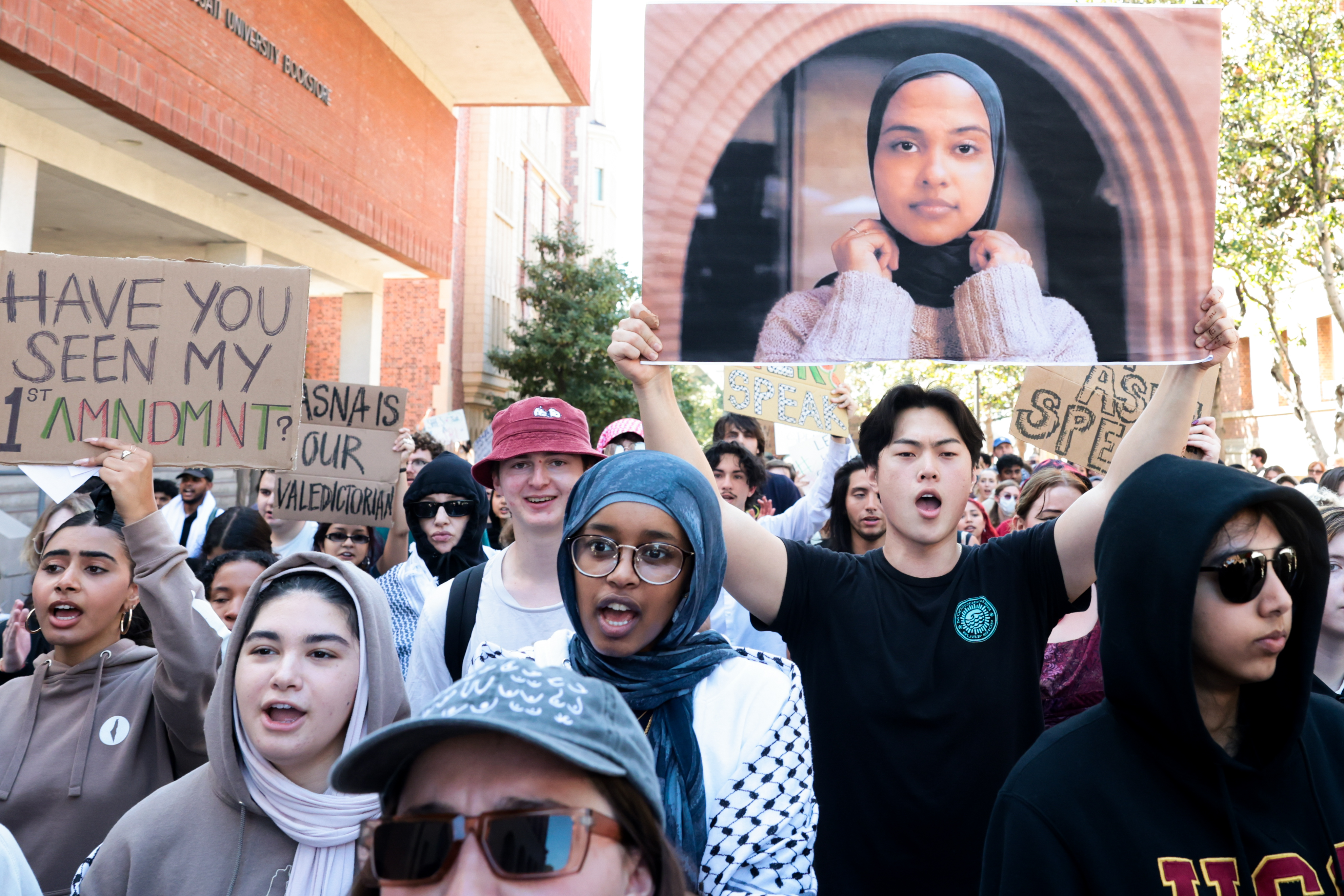A Highland Park gang member, who spent more than 15 years on the run, was sentenced Monday to 20 years behind bars for the unprovoked murder of an innocent motorist whose killing was part of a deadly anti-black pact among gang members that used violence, intimidation and harassment to force blacks out of the mostly Latino neighborhood.
Before Merced "Shadow" Cambero, 39, was sentenced, U.S. District Judge Percy Anderson made sure that survivors, witnesses and those affected by the 1999 murder accepted the plea deal that resulted in a sentence that was considerably less than the maximum possible term of life in federal prison.
"This is a particularly troublesome decision for the court in light of the fact that three people lost their lives, if for no other reason than the color of their skin," Anderson said, adding that he "reluctantly" accepted the plea agreement.
Cambero pleaded guilty in February to felony counts of conspiracy against rights, interference with federally protected activities, and use or discharge of a firearm during a crime of violence causing death. Cambero admitted he shot 38-year-old Kenneth Wilson, a black man who did not live in Highland Park and was looking for a parking space while visiting friends in April 1999.
The case against Cambero and his co-defendants in the Avenues gang marked the first time the federal hate crime statute had been used to combat racial violence by members of a street gang, according to the U.S. Attorney's Office.
In 2006, while Cambero was a fugitive, three fellow members of the Avenues gang were sentenced to life in federal prison as part of the six-year conspiracy that also saw another black man gunned down at a bus stop in December 2000. A fourth man was convicted as a lookout in that 2000 slaying of 28-year-old Christopher Bowser.
Following his 20-year prison sentence, Cambero must serve a five-year term of what prosecutors characterized as "particularly stringent" supervised release, including a requirement that the defendant submit, at any time of the day or night by any law enforcement or probation officer, to warrantless and suspicion-less searches of his person, property, residence, vehicles, papers, computers and phones.
U.S. & World
That provision will allow for close monitoring of Cambero and "help ensure that if he violates any law or any term of his supervised provision, his release can be revoked and he can be returned to prison," Assistant U.S. Attorney Barbara Bernstein wrote in a sentencing document.
Before sentencing went forward, the court heard from Luisa Prudhomme, whose biracial 21-year-old son, Anthony, was killed in 2000 when Avenues members shot him in the head as he lay on a futon.
"It's the worst thing in the world to lose a child...murdered in cold blood in that way," she said, adding Wilson's late mother would have agreed. "I pray that there's justice for all of our loved ones."
Bowser's mother also spoke, telling Anderson that "from my heart, I don't have any vengeance against (Cambero). He has to answer to God."
In its position papers, the government said it recognizes that the crimes in the case are "among the most serious in the penal code, and that, if there were no other factors to take into consideration, imprisonment for life would be a just punishment."
However, "based on a number of powerful considerations--including the desire of almost every witness and victim to avoid the terrifying prospect of again having to testify about violent gang activity; evidentiary concerns raised by the fact that the evidence is now 20 years old; and the desire of the victims, witnesses, and government for definite and final justice--the prosecution entered into plea negotiations to determine if a just resolution could be reached without the need for another trial."
In a hand-scrawled letter to the judge, Cambero apologized "to everyone in Highland Park for all the hurt I caused as a member of the Avenues gang." He wrote that he often thinks of the now-deceased mother "of the man, Mr. Wilson, that I killed on Avenue 52 that night 20 years ago."
Cambero was taken into custody by Mexican authorities in Baja California and turned over to the FBI at the border last year. He was one of three shooters who gunned down Wilson, who died of a gunshot wound to the neck, court papers show.
Anderson said Cambero will be in his late 50s when released from prison, an age when "the risk of recidivism is believed to be reduced."
The judge then reminded the audience that "we all know someone that has been impacted by gang violence. There isn't a day that goes by when we're not reminded...and it's a cost we all have to pay. I don't care what part of the city you live in."



